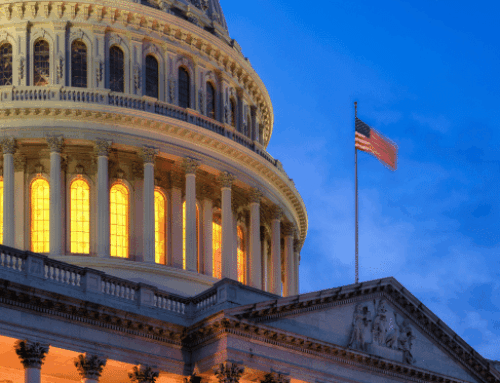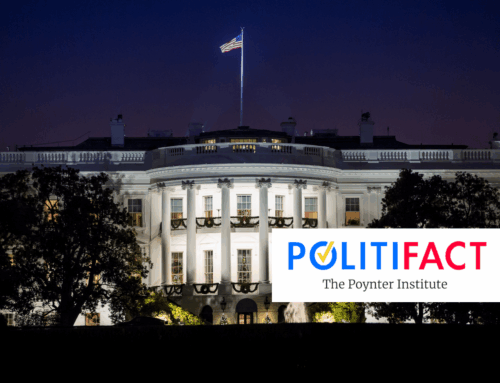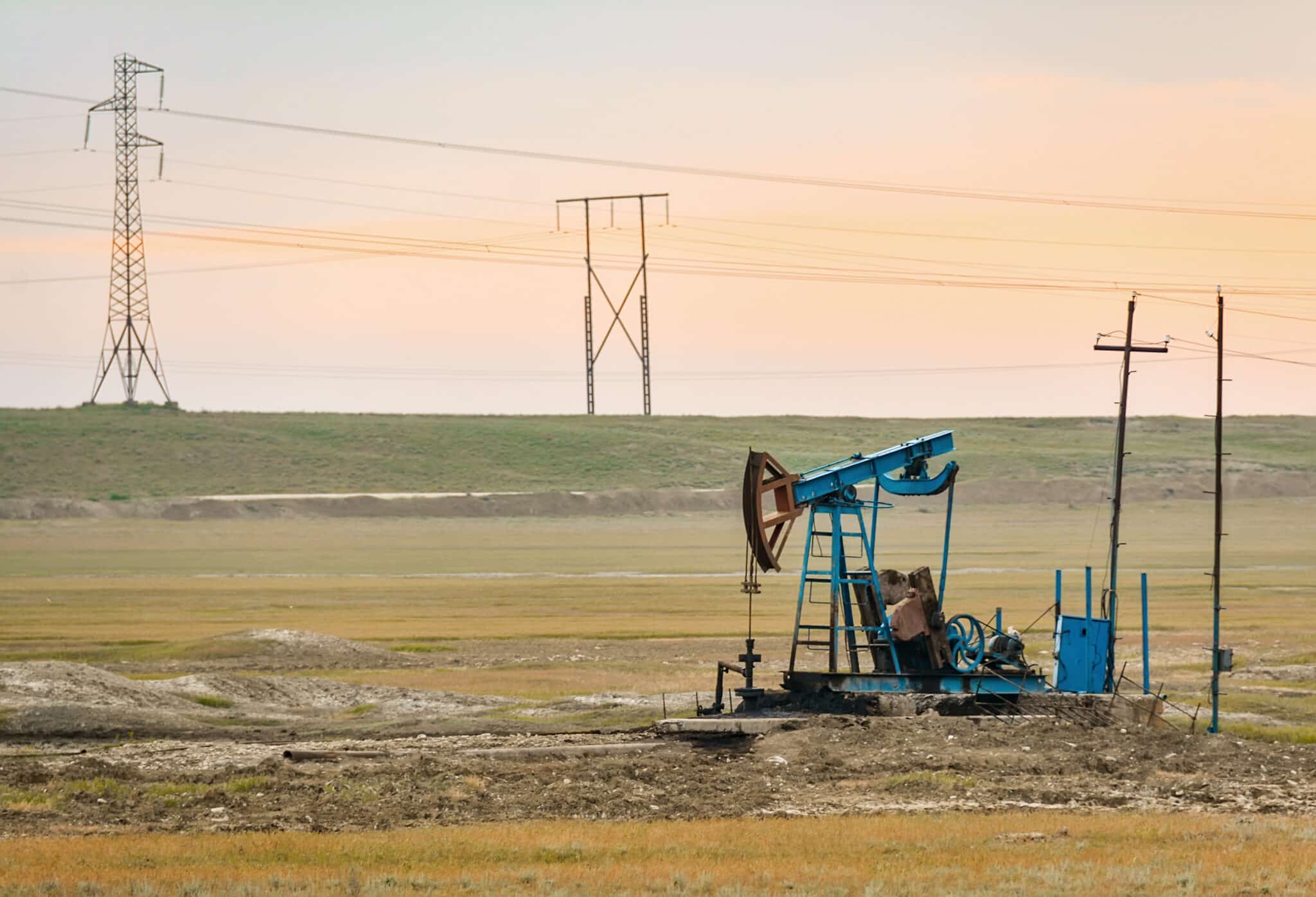Listen here on Apple Podcasts
Episode 36: Transcript
Announcer:
Welcome to Budget Watchdog All Federal, the podcast dedicated to making sense of the budget, spending and tax issues facing the nation. Cut through the partisan rhetoric and talking points for the facts about what’s being talked about, bandied about, and eat about and pushed to Washington, brought to you by Taxpayers for Common Sense. And now a host of Budget Watchdog AF, TCS President Steve Ellis.
Steve Ellis:
Welcome to All American Taxpayers Seeking Common Sense. You’ve made it to the right place. For over 25 years, TCS that’s Taxpayers for Common Sense, has served as an independent, nonpartisan Budget Watchdog group based in Washington DC. We believe in fiscal policy for America that is based on facts. We believe in transparency and accountability because no matter where you are on the political spectrum, no one wants to see their tax dollars wasted.
Today, we’re bringing you an end of 2022 year-in-review episode. I’ve gathered the whole TCS team to break down what we’ve accomplished and seen here at the end of the 117th Congress, plus the keenest insights on what to expect from the 118th Congress getting underway in January. Welcome back watchdogs. All right. Let’s get started. Autumn Hanna, what do you got for our Budget Watchdog AF faithful?
Autumn Hanna:
Well, Steve, one of the biggest wins for taxpayers this year really in TCS history was a suite of oil and gas fiscal reforms that got included in the Inflation Reduction Act. To be fair, the Inflation Reduction Act was a big bill. And while we have a lot of questions about all the pieces of that bill and where the money is going to be spent and how much we’ll get from all of that, these reforms were super significant and a big part of our work for the last 28 years now. And that’s because it’s been over 100 years since we’ve seen the oil and gas royalty rate be updated.
We went from 12.5% originally set in 1920 to 16.67%, so more than four percentage point jump and something that we’ve really been trying to get updated for a long time. That’s because states like Texas have been charging 25% and even for offshore oil and gas produced on federal waters, we’re getting 18.75% in royalties. This is taxpayer-owned oil and gas and we are just getting shortchanged year after year, losing billions of dollars in revenue and that’s a big win we’ll take after 100 years.
Now, royalty rates weren’t the only fiscal reform we got in the bill that was a big win. Rental rates and minimum bid amounts also got an update for the first time since President Reagan was in office. They hadn’t even been adjusted for inflation in over three decades. And another big win for us was on non-competitive leasing for oil and gas. We exposed this issue in 2018 when a company in Montana had leased over 100,000 acres when we’re sitting out the bidding process, while nominating the parcels and then getting the parcels for no bid at all. Our work was featured in the New York Times, but the problem kept on and we weren’t able to get any reforms until this summer.
In places like Nevada, the majority of leases had been leased non-com competitively. Though overall another big win for us and hopefully we can make sure that leases are now more competitive and used for oil and gas. As you can imagine, things like this and these outdated rates led to a lot of speculation and abuse of federal lands and resources.
One other thing we got was an expression of interest fee that could help protect from the speculation too, because like I said, when you’re not developing the land for oil and gas and you’re getting it so cheap, then taxpayers are really losing because you can’t even use it for other things like recreation or other energy and development. They all told a pretty good year on the fiscal side for the federal oil and gas leasing system and taxpayers, but we’re really looking to build on these reforms in 2023.
Steve Ellis:
That’s really great, Autumn. I mean it’s been quite a big year and quite a big win, so thanks for sharing that with podcast listeners. So let’s shift gears and check in with Mike Surrusco. Mike, what do you got?
Michael Surrusco:
Hey Steve. So I think what I’m most excited about after our work during 2022 is some of the things that we’re moving into now in the climate space. As regular listeners probably know, we do a lot of work on energy issues and agriculture issues and defense issues that could be considered as part of this. And I’m sure some of my colleagues will talk more about that. What I’d like to talk about is some of the changes they’re going to hopefully be happening in the way that the federal government buys goods and services and the possibility that some of that will now include consideration about climate costs.
So we’ve started working on this back in March. We did op-ed in a publication called Angst Stick that talks about how the Department of Defense, one of the largest consumers of energy institutionally and the largest consumer of petroleum should wait the request for proposals for its procurement to include consideration of the way that certain suppliers are reducing their carbon footprint, which is similar to some comments that we submitted to the Securities Exchange Commission over the summer that would require companies to report as part of their SEC filings, the amount of greenhouse gases that they emit and what are their vulnerabilities to climate risks.
So finally, this is culminated, you could say in some work that we’re doing most recently on the federal acquisition regulations, which are as the name implies, they cover a broad range of rules for the federal government as it’s buying goods and services. And what’s being proposed is that federal acquisition rules generally would begin to have a preferential treatment for companies that are measuring and reporting their greenhouse gas emissions and adopting a plan to cut down on those emissions. And this is obviously a big deal.
For us, I think one of the best parts about this is it’s a really cost-effective way for the federal government to meet its policy goals. We spend a lot of money on subsidizing things and on different federal programs, but by changing our buying habits, we can move entire markets because of the purchasing power of the federal government and how all of the changes that may happen for federal suppliers could ripple through the economy. So we’re expecting some more on this in the beginning of 2023. You can expect to hear a lot more about this from us next year. And I think this is an area to watch because it could have big impact on how we start to include some of these climate costs in our economic activity.
Steve Ellis:
Wow. Thanks a lot Mike. I think this is a huge area for work for us and it’s really another spin on the power of the purse. I mean at least we’re going to get something by buying so much goods and services and really try to benefit taxpayers and the climate. And this isn’t the only time we’ve put our thumb on the scale for acquisition. They’re set-asides for small business, minority-owned, women-owned, veteran-owned, Alaskan Native tribes. So this is something that makes a lot of sense and it’s a really good area for TCS to be involved in. Thanks for that.
All right. So let’s shift over to our Oracle of Omaha, Sheila Korth, although we’re lucky that she’s actually here in DC for a few days. So is sharing her wisdom from here, but still has all of that Nebraska Cornhusker wisdom. So Sheila, what do you have?
Sheila Korth:
Thanks, Steve. Actually thought about buying a Warren Buffett book for our holiday party recently, but somehow we got diverted into buying something else instead. But I’ve actually gotten asked this question a lot recently as to whether or not our work actually accomplishes anything. And I think we get so focused on the next thing ahead, the next big bill or the next reform to try to achieve that we forget about some of our accomplishments. So I love that we’re doing this today.
The one that I’m going to talk about today is actually about a 20 billion increase in agriculture conservation funding that was added to the Inflation Reduction Act passed earlier this year that you heard about. So these are things like funding farmers to plant cover crops and maybe recreate or improve wetlands and wildlife habitat, maybe even plant trees that have a lot of benefits for things like air quality, water quality, climate, and can also improve farmer’s bottom lines.
So my dad actually has a farm and you can see some of these AG conservation dollars at work. So it’s great to be able to point to some of these things. When I show my kids what I work on as well when I can point to conservation reserve program land or other programs and the benefits that they provide on the land. These programs are very over oversubscribed at the US Department of Agriculture. So it’s great that there’s been more funding put towards some of these programs, which can do a lot of good because a lot of times farmers will submit an application, and USDA just doesn’t have enough money to fund those programs. But as a taxpayer group, we definitely want to ensure that this money is spent wisely and goes towards the projects with the best bang for taxpayers’ buck. So we’re doing a lot of work on that front and we’ll continue to do so over the next few years.
And then finally, Steve, as you know, we can’t be on a podcast without talking about the farm bill, especially Josh. So going into next year with the new farm bill, we want to ensure that we aren’t funding new subsidies or continuing wasteful subsidies that undercut some of these conservation goals and work at cross purposes with other government programs. So we have of course more work to do, but we need to celebrate this accomplishment as well for taxpayers and farmers alike.
Steve Ellis:
Well, I’m glad that we got you here to celebrate it with us here in person, Sheila. So even though I know you’re heading back soon, but it’s been great having you here for a few days. And since you already teased the farm bill, Josh is probably upset you stepped on him a little bit. But let’s turn to Josh Sewell to tell the podcast listeners what he wants to celebrate this year.
Josh Sewell:
Well, Steve, I want to celebrate the fact that we got the farm bill band back together. I know it’s a great thing. I talk about the farm bill a lot, but the farm bill is truly around the corner. It’s on the list of priorities for a congress next session. So we spent the last year reaching out to our potential friends and this November we released joint principles for Common Sense reform in the farm bill. Us at TCS, the R Street Institute, the National Sustainable Agricultural Coalition, and US PIRG all got together and agreed on the need for significant and fundamental farm bill reform. And the great thing about this band singing from the same sheet is that we’re all coming at this from very different perspectives, but if this diverse Mopley Crew can find common ground, I’m truly optimistic that we can make a farmer and taxpayer-friendly farm bill a true reality in 2023.
Steve Ellis:
You’re listening to Budget Watchdog All Federal, the podcast dedicated to making sense of the budget, spending, and tax issues facing the nation. I’m your host TCS President Steve Ellis, and we continue now with a TCS team. Mia Huang, what you got?
Mia Huang:
Well, Steve, I’d say another win for taxpayers worth mentioning is that federal agencies are taking actions to tackle methane waste. I highly recommend checking out our episode 29 on venting and flaring if you’re interested in learning more about the problem of methane waste on federal lands. So to sum something up, current rules allow oil and gas companies to waste billions of cubic feet of natural gas extracted from federal lands through the practice of venting and flaring. And much of this gas is wasted without incurring a royalty.
So not only are consumers deprived of a valuable energy source that could have been brought to market, federal taxpayers were also denied a fair return on a resource that’s extracted from federal lands. And methane, the largest component of natural gas is also a very potent greenhouse gas that contributes to climate change. So talk about a triple whammy for taxpayers.
Steve Ellis:
Do we have any idea how much natural gas has been wasted, Mia, and how much that is cost taxpayers?
Mia Huang:
Yes and no. We do have the data, but it’s a little bit flawed. So according to self-reported data from oil and gas companies, approximately 300 billion cubic feet or BCF of natural gas was vented, flared and wasted on federal lands. That’s enough energy to power more than 3.2 million households electricity use. If we use the average monthly Henry Hub Natural Gas spot prices, this gas had an estimated value of close to billion dollars, but the real volume and value of that lost gas is likely much higher due to enter reporting and the lack of oversight.
But the good news is that the Bureau of Land Management, the agency that oversees the federals insured oil and gas program, released a proposed rule last month to address this blatant waste of taxpayer resources. The EPA also issued a supplemental proposed rule that would expand and strengthen performance standards for oil and gas facilities, but their focus is more on reducing methane emissions as a pollutant and a greenhouse gas. We look forward to engaging with agencies on these rules in 2023. Specifically, we really hope that any final be on methane rule will eliminate or phase out the wasteful practice of non-emergency venting on flaring.
Steve Ellis:
Got it, Mia. Thank you very much. So, Wendy Jordan, any national security wins you want to tell the podcast listeners about?
Wendy Jordan:
Absolutely, Steve. Thanks for asking. There are actually two things that I think were significant wins for good government at oversight in the national security area. And there are really two sides of the same coin as people who are close readers of TCS analysis and close listeners to the podcast know, we’ve been spending a lot of time paying attention to the money that is being sent under emergency conditions through emergency supplemental appropriations bills to help Ukraine. Some of that is humanitarian assistance. A lot of it is direct military assistance, but whatever type of assistance it is, it’s tens of billions of dollars that’s being spent. And we’ve been pointing out for months that we are sending this money to a country that is under siege, literally under siege. The government is working out of bunkers. Sometimes they have electricity, sometimes they don’t have electricity, sometimes they have running water, sometimes they don’t have running water, and we’re just sending this money and equipment and ammunition and you name it.
And that is a recipe for loss. And the loss can be from simple human error and it can be from fraud. It can be various reasons that you would lose track of munitions or money or aid of any type. So we’ve been asking for more oversight. And the big win for us this year on that topic was that the Pentagon policy bill, which passed in the house and the Senate requires several federal IGs, not just the Pentagon IG, several federal inspectors general to do greater oversight of how that money’s being spent, where it’s going and report to Congress on those findings. So that’s huge. We needed exactly that oversight. TCS led a group letter to the Hill asking for that type of oversight, and we got it in the Pentagon policy bill.
Now the other side of that same coin is for more than six years, the Inspector General in the Department of Defense has been an interim placeholder. It was not the permanent Inspector General. There was inspector general nominated to take that job. And he was held up for months and months and months and over things non germane to his work, frankly. So finally, the Senate confirmed the Pentagon Inspector General about two weeks ago. So that person can now hit the ground running in the Pentagon with a mandate among many, many other things on his plate to do greater oversight of the tens of billions of dollars that are being sent to Ukraine.
Steve Ellis:
That’s great, Wendy. Thanks. And it reminds me that there’s still not just in DOD, but there’s other places in government where they still don’t have a confirmed inspector generals. And these are folks that are rooting out waste and are really great friends of taxpayers. And just hearing from you, Wendy, reminds me and I wanted to tell all our budget watchdog AF faithful that Wendy’s been pulling together our holiday card version of the weekly waste basket, where you can hear a little bit about what we’ve all been up to and what’s been happening to your favorite TCS staff this last year. So please take a look at taxpayer.net and subscribe.
Wendy Jordan:
We have pictures.
Steve Ellis:
This is true. Cats, dogs, oh my good.
Wendy Jordan:
Oh my.
Steve Ellis:
All right. And maybe even a bunny. Okay.
Wendy Jordan:
Thanks Steve.
Steve Ellis:
So now-
Sheila Korth:
Better than cats and dogs. Kittens and puppies, that’s what’s [inaudible 00:19:09] calendars and we’re hoping to throw some waste baskets too.
Steve Ellis:
Yes. So I’m glad you appreciated that. Shout out to your bunny rabbit, Sheila. All right. Now over to you Tyler. Tyler Work, what do you got for us?
Tyler Work:
Thanks Steve. The TCS accomplishment I’m very excited to have the chance to talk about with you is TCS’s new wildfire program. As you know, wildfire has always been an important issue for federal taxpayers. Every year we spend billions of dollars on wildfire prevention and suppression, as well as helping communities rebuild after wildfire events. And as wildfires across the country continue to increase in both size and intensity, so is the federal government’s commitment to helping address these devastating disasters.
In response to this rising threat, Congress has included additional wildfire spending. That’s more money on top of the billions we already spend in recent legislation. Like last year, Congress authorized an additional 5.5 billion in the bipartisan infrastructure investment in Jobs Act. And while these investments are important steps in protecting taxpayers, we know spending billions of dollars alone will not solve the wildfire crisis. In fact, if left unchecked, haphazard or misguided programs could even take us backwards in the fight for increased wildfire resilience.
TCS has a long history of analyzing spending and policy making, including our from the Ashes Wildfire report that we published more than 20 years ago. And we’re using this experience to dig into both past and current wildfire spending across various federal agencies. We’ve already started using this research to connect with groups on the ground and really look forward to releasing a full report early next year.
Steve Ellis:
Thank you, Tyler. It is a really exciting area to be working in and in a very important area. So thank you very much for that update and I’m sure our listeners appreciate that too. Let’s turn to Gabby Sanchez. I know you’ve been looking through some of our performance metrics and such, along those lines. What do you have to report to our podcast listeners?
Gabriela Sanchez:
Steve, we were prolific with 121 different analysis of public policy issues, 51 weekly waste baskets, 19 investigative reports, the watchdogs were busy. Also, there were 10 public comments and 20 letters to Congress where we were joined more than 60 different co-signing groups across the political spectrum. But wait, there’s more. TCS was cited by more than 1,150 media outlets from NBC News and Fox News to the New York Times and Casper Star Tribune to USA Today, among others, 22 podcasts, counting this one and 14 OPS. We definitely were out there.
Steve Ellis:
Sounds like it, Gaby and I like the little infomercial, but wait, there’s more. So I could hear a little Ron Popeil from Ronco. So thank you very much. Next I’d like to turn to our good friend and colleague Ike Obi, but he couldn’t make it today, but I do know what he would be touting. Budget Watchdog AF listeners know that the last time they heard the dulcet tones of Ike’s voice, he was talking about going out for Halloween as one of the new IRS employees hired under the 90 billion in extra cash provided by the Aforementioned Inflation Reduction Act, the IRA. This became a touchstone and it’s something that’s going to be a touchstone going forward, but it was something that TCS staunchly defended and recognizing that this could save taxpayers 200 billion over the next decade. So we were spending 90 billion to get 200 billion in savings.
And not only that, there was a tax about how the 87,000 employees, which they’re expecting about 60,000 retirements over the next decade, these 87,000 new employees were really agents. They were going to be portrayed as jack booted thugs with pocket protectors. Well, in reality, these are employees for one of the oldest workforces in the federal government. And that it was going to, as I mentioned, replace a lot of the retirements and actually help respond to people’s phone calls. You’ve probably heard about how people are calling the IRS and not getting through. So that’s one thing. And then also to be able to conduct more extensive investigations into exotic and abusive tax schemes.
So this is something that is good for taxpayers, is good for the IRS and is really good for government. So it’s something that we definitely defended and supported and were cited by a lot of fact checkers. It’s something I know that we’re going to be having to work on next year as well. But it’s an investment. So now I guess I’ll turn the microphone or the question back to me and to what I wanted to cite. And as my longtime colleagues have known that I’ve been a big proponent of pre-responding to natural disasters. And by pre-responding I mean that we’re actually using funds after a disaster to actually pre-respond to the future natural disasters. And I’m proud to say that an op-ed that I penned in New York News Day had pre spading in the title. So I’m taking credit for that.
And that actually gets into, we’re talking about what Tyler talked about with wildfires and issues there and a lot of other issues. The other thing is just last week, the Community Disaster Resilient Zones Act was passed by both chambers. And this would actually use data to identify and designate communities with the highest natural hazard risk, the lowest resilience and highest needs to direct resources to these communities in every State of the Union. And this to me is also an important small but incremental step to try to make sure that our disaster dollars are being used the most effectively, where they’re most needed in an equitable fashion and pre responding to future disasters that we know will occur.
And I’d like to just take one moment here to also one to thank all of you, Budget Watchdog All Federal podcast listeners. We really hope you’ve enjoyed listening to our full suite of programs this year. And then also I want to thank my colleagues for coming on and sharing some of our successes. It’s been a really great year at TCS and I’m sure if you go and visit our website at taxpayer.net and you’ll see a lot more. So thanks again to all my colleagues.
There you have it listeners. The struggle is real, and the fight continues to make sure your government doesn’t spend our tax dollars poorly, but actually spends them wisely and appropriately on the right things. This is the frequency, market on your dial, subscribe and share and know this America, taxpayers has your back. We’ll be back with a new episode in January and I hope you’ll meet us right here.








